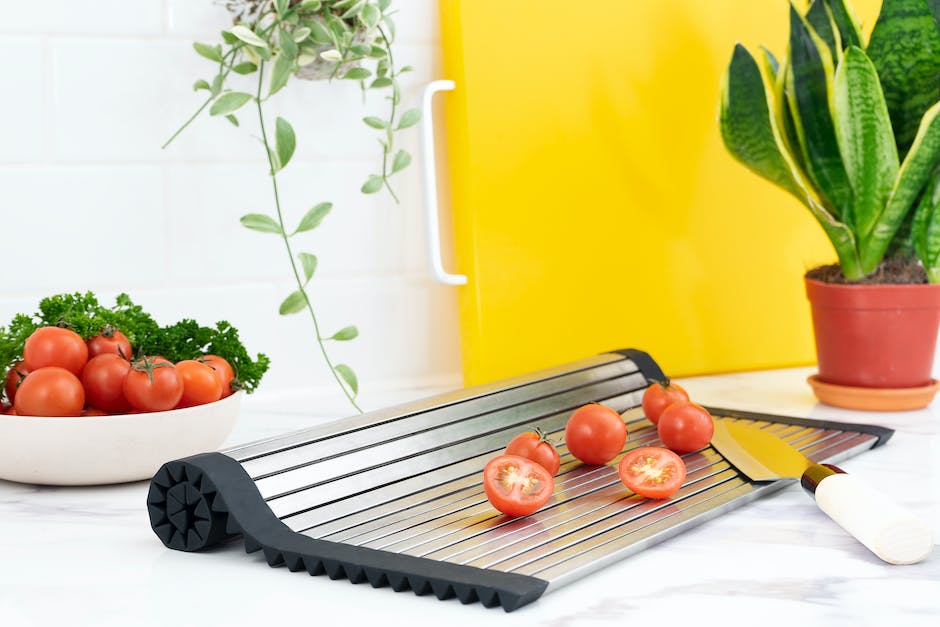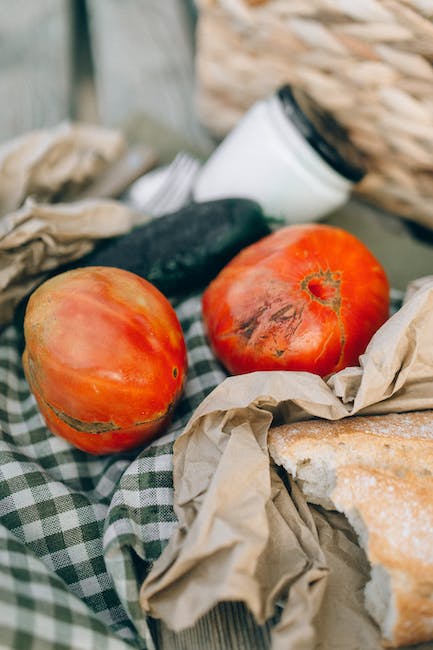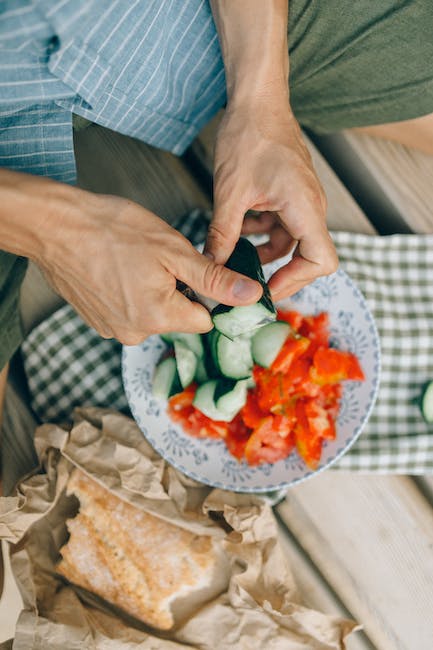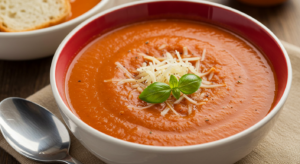
Can You Freeze Salad? Understanding the Freezing Process
When it comes to preserving your favorite dishes, the question often arises- Can you freeze salad? The answer isn’t a straightforward one. Freezing food can be an effective way to extend its shelf life, but not everything takes well to the freezing process. The issue with freezing salad, particularly those with leafy greens, is that they are primarily composed of water. When you freeze these salads, ice crystals form on the plant cells, which can damage their structure upon thawing.
The type of salad matters too. The type of salad, its salad ingredients, and the method used to freeze all have an impact on the outcome. For instance, while freezing lettuce and other green salads is generally not recommended, other types like chicken salad or potato salad might fare better. Freeze chicken salad or freezing potato salad does not yield the same lousy result as with a lettuce salad since the main ingredients are not primarily water-based.
The Dilemma of Freezing Salads with High Water Content
Freezing food items with a high water content, like fruits and vegetables, can be problematic. This is because the water inside the cells expands when frozen, which can cause the cell walls to rupture. After you thaw frozen salad, the water will not be held in place by the cells, leading to a soggy result. This is less of a concern for foods with lower water content.
You need to note that some salad ingredients don’t freeze well- like cucumbers, tomatoes, radishes, and celery. These contain even more water than lettuce. Therefore, they become even mushier once thawed. Freezing lettuce or other leafy greens not meant to be cooked can ruin its texture and make it unappetizing.

Importance of Proper Freezer Bags for Freezing Salads
If you still decide to freeze your salad, the right storage can make a significant difference. Using freezer bags specifically designed for freezing food can help. These bags are thicker than regular zip-lock or plastic bags, offering better protection against freezer burn.
Remember to remove as much air as possible before sealing. It helps to reduce the number of ice crystals form on the plant cells on the surface of the food. It’s also essential to freeze salad in the right portion sizes. Having to defrost more than you need can lead to wasting food, as refreezing is not recommended.

Room Temperature can Speed up the Freezing Process
Before you freeze, let the salad cool to room temperature. Placing a warm salad in the freezer can increase the freezing time and may even raise the temperature of the freezer, which can affect other stored foods’ quality. Once the salad reaches room temperature, you can start the freezing process.
Remember to make sure everything in the freezer is wrapped tightly and as airtight as possible. The quicker the salad freezes, the smaller the ice crystals will be. It keeps the cell structure of the ingredients reasonably intact, hence better texture upon thawing.

Tailoring the Best Salad Recipe for Freezing
Getting the best salad recipe that freezes well requires a bit of tweaking. For instance, omit the ingredients that don’t freeze well, or add them fresh when you’re ready to serve the salad. Moreover, freezing salad dressing separately can be a better option, as it’s usually the liquid part that doesn’t freeze well in a salad.
Salads made with cooked ingredients, like pasta or roasted veggies, can also freeze better than those with fresh, raw ingredients. Consider tailoring your recipe to include ingredients that freeze well. For instance, grain salads, like quinoa or bulgur salads, handle the freezing process better than lettuce-based salads.

Don t Freeze Fresh Fruits
Generally, it’s better don t freeze fresh fruits in a salad, mainly if the fruit was cut into small pieces. The high water content in fruit causes it to become mushy after freezing and thawing. Moreover, freezing can cause loss of some nutritional content.
If you want to include fruits in your salad, add them fresh once you’re ready to serve the salad. Alternatively, for items like apple or pear that can turn brown, toss them in a bit of lemon juice before adding to the salad.

Risk of Food Poisoning with Improper Freezing
Improper freezing can lead to food poisoning. This often happens when food is allowed to sit at room temperature for too long before freezing or when food is not correctly sealed. The danger zone for bacterial growth is between 40°F and 140°F (4°C to 60°C).
Therefore, it’s crucial to cool salad to room temperature quickly, ideally within two hours. Then freeze it as soon as it reaches room temperature. Make sure all the food is appropriately wrapped and sealed before freezing.

Fresh Is Better: Avoid Freezing Salad Greens
When it comes to salads, fresh is always better. Salad greens like lettuce, spinach or cabbage, certainly don t freeze well and will become wilted, soggy, and lose their crunch when thawed, making for an unappetising salad.
The good news is that most salad greens have a pretty good fridge life, especially when stored correctly. You don’t need to resort to freezing unless you find yourself unable to finish them in time. If you must freeze, choose hearty greens over delicate ones, as they tend to hold up better.
FAQs
Q1: Can you freeze salad?
Yes, you can technically freeze any salad, but the results depend on the salad ingredients, type of salad, and freezing process.
Q2: How does the freezing process affect salad?
When salad, especially those with leafy greens and high water content, is frozen, ice crystals form on the plant cells, damaging them and leading to a soggy texture upon thawing.
Q3: Is freezing salad dressing a good idea?
Generally, freezing salad dressing separately can be a better choice, especially if it contains water-based ingredients that can become watery or grainy when frozen and thawed.
Q4: What makes the best salad for freezing?
Grain salads, like quinoa or bulgur salads, can handle the freezing process better compared to lettuce-based salads. Salads with cooked ingredients, like pasta or roasted vegetables, will also freeze better.
Q5: What’s the risk of food poisoning with freezing salad?
The risk arises when salad is left to sit at room temperature too long before freezing or when it’s not correctly sealed, leading to bacterial growth.
Q6: Why shouldn’t you freeze fresh fruits in a salad?
Fresh fruits in a salad can become mushy after freezing and thawing due to their high water content. It could also cause a loss of nutritional content.
Q7: Is it possible to freeze chicken salad?
Yes, chicken salad can be frozen and often fares better compared to salads made primarily with leafy greens.
Q8: How does room temperature affect the freezing process?
Allowing the salad to cool to room temperature before the freezing process can speed up the process and prevent the increase of freezer temperature, which could affect the quality of other stored foods.
Q9: What type of bags should I use to freeze salad?
Freezer bags which are specifically designed to freeze food and are thicker than regular zip-lock or plastic bags, offer better protection against freezer burn.
Q10: Why should you avoid freezing salad greens?
Salad greens like lettuce, spinach or cabbage don’t freeze well and will become wilted, soggy, and lose their crunch when thawed. Fresh is always better in such cases.








